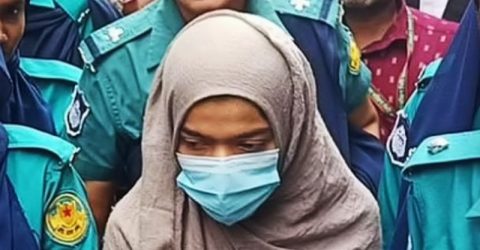
Fatema Tuz Bushra
“My mother told me to be a lady. And for her, that meant be your own person, be independent.”(Ruth Bader Ginsburg).
Women have for a long time been marginalized in almost every culture and context without being protected by any system of law though the Laws play an important role in setting norms and standards on acceptable and unacceptable acts on the issue of gender and development. You may wonder – we have had many laws on gender issues. However, gender discrimination has not reduced or been eradicated; neither has gender-based violence. What is the relevance of such laws then? Even if standards set by such laws are not fully implemented, and are frequently violated, law remains significant as a standard whose implementation / enforcement can be demanded – individually and by groups. If the law did not exist in the first place, say, prohibiting domestic violence, how could women assert their right to live with dignity and peace in their homes? Apart from providing justice to aggrieved parties, law seeks to protect weaker, marginalized and vulnerable sections of society, including women, in order to bring about social justice and equality.
However, this millenary social pattern was eventually challenged during the last century, when the Universal Declaration on Human Rights (UDHR) stated, mainly in Article2 and 7 that every individual, without any exception, has to be considered equally before the law. Thereafter all countries that ratified UDHR have committed themselves to solving women’s inferior conditions, seen as a social pathology, through the use of law. The UDHR, designed in 1948, might be seen as the first step towards an equal world. It was conceived as a bridge between international law, the will of few over many, and the rights of the world population as a whole. Proclaimed within the United Nations (UN) context this document was couched in universal terms. Every right remains vague in its article to aid its acceptance by every culture. The UDHR remains unconstraining, and behind it many conventions were drafted and signed by states as internationally binding documents. Among those was one with respect to the rights of women, largely encouraged by the women’s movements of the 1970s.
To date, the most important international document in gender-based violence is the Convention on the Elimination of all Discriminations Against Women (CEDAW), presented in 1979 by the UN. It was admitted that “extensive discrimination against women continues to exist”. Whether or not the turning point on the delicate issue of women rights was CEDAW or DEVAW, more than 50 countries ratified CEDAW after 1993, and Bangladesh was among them. Moreover, CEDAW remains the only global legal convention on women’s rights that has now assumed status in international customary law.
Nonetheless, the Constitution of Bangladesh is a legal, political and moral document. All our basic rights are written in and guaranteed by the constitution. The Constitution of Bangladesh being the most important law in Bangladesh sets certain standards with regard to woman rights. These standards and principles were subsequently elaborated through other laws.
Some of the important values stated in the constitution include justice (social, economic, and political), liberty (of thought, expression, belief and worship) and equality (of status and opportunity). These values are intrinsically linked to empowerment of women. The Constitution of Bangladesh contains a chapter on fundamental rights, which is charter of rights that essentially protect an individual’s life and liberty from arbitrary acts of the government, state organs and agencies. Similarly, another chapter titled principles of state policy provides guidelines to the state for its governance in accordance with the principles it incorporates, the fundamental rights and principles of state policy together from the backbone of protective laws for women.
In addition, Law is like a double-edged sword. On one hand it is tool for empowerment of woman and other marginalized communities. It is up to each individual to make use of empowering laws to assert their rights. Information about such laws is a first step towards assertion of rights through law. The crucial question that arises for deliberation is: Have the women been able to reap the benefits provided for them under the Constitution of Bangladesh and all the laws which have been made for the empowerment of women? The answer, unfortunately, is not encouraging. There is still a long way to go to achieve the goals enshrined in the Constitution and all other laws.
In spite of special constitutional guarantees and other legislations, crimes against women in the form of child marriages, rape, dowry, trafficking of the girl child, prostitution, domestic violence and sexual harassment are on the increase. The review of the disabilities and constraints on women, which stem from socio-cultural institutions, indicates that the majority of women are still very far from enjoying the rights and opportunities guaranteed to them by the Constitution.
Women have suffered and are suffering discrimination in silence. Self-sacrifice and self-denial are their nobility and fortitude and yet they have been subjected to all inequities, indignities, inequality and discrimination. It is realized that despite the constitutional safeguard and the active judicial support towards the cause of women, changes in social attitudes and institutions cannot be brought about very rapidly.
However, it is necessary to accelerate this process of change by deliberate and planned efforts so that the pernicious social evil of gender inequality is buried deep in its grave. Laws written in black and white are not enough to combat the evil. Awakening of the collective consciousness is the need of the day. A problem as multifaceted as women’s self-actualization is too important to be left to a single section of the society. This responsibility has to be shared by the country, community organizations, legislators who frame the laws and the judiciary which interprets the Constitution and other laws in order to give a fillip to the legal reform in the field of gender justice and to usher in the new dawn of freedom, dignity and opportunity for both the sexes equally.




